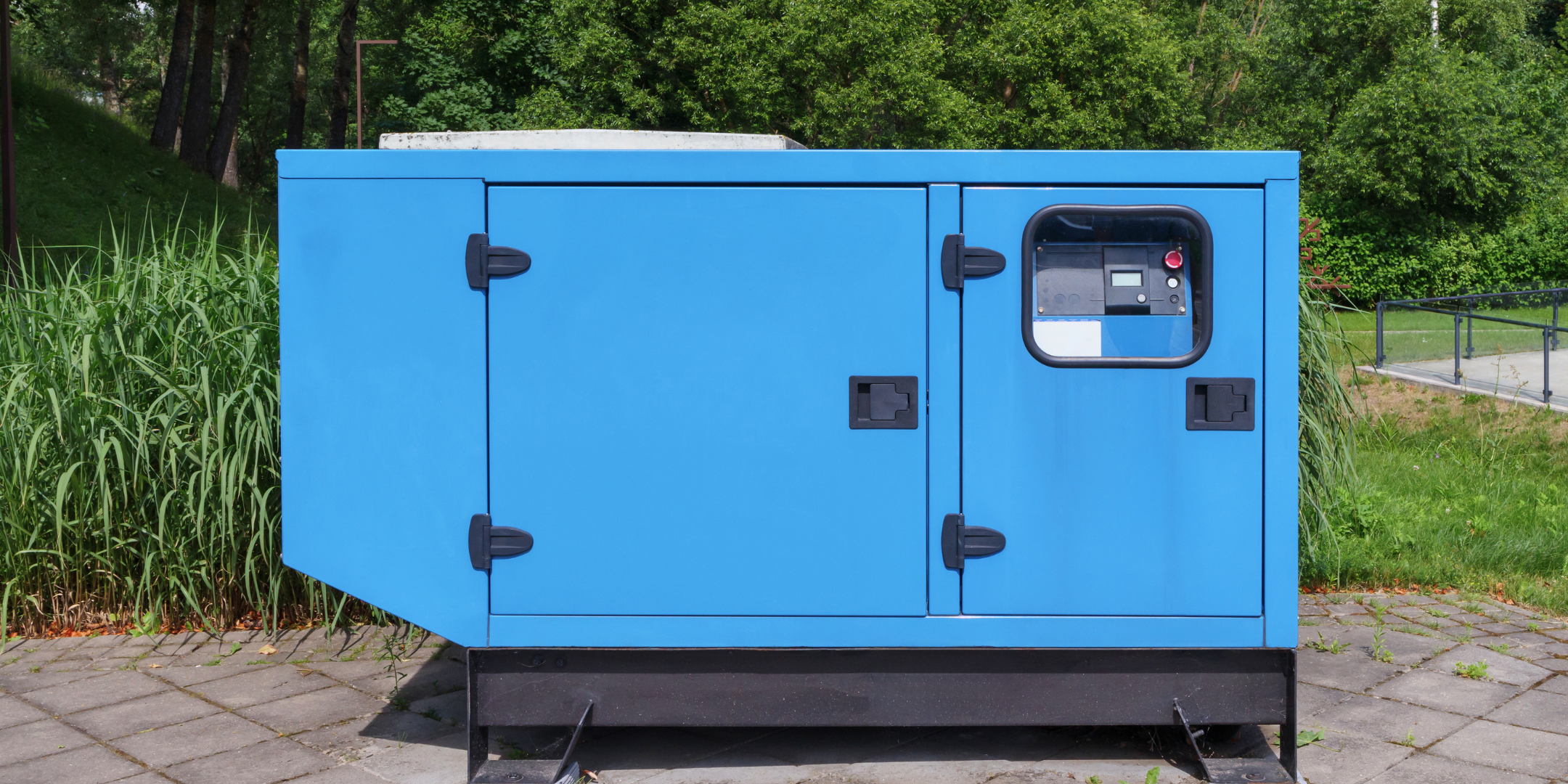6 Whole-House Generator Maintenance Tips: How to Keep Yours Running Smoothly
November 7th, 2024
5 min read
By Daphne Hunt

When the power goes out, the last thing you want is for your whole-house generator to fail just when you need it most. Without regular maintenance, even the best generators can run into problems, leaving you in the dark.
need it most. Without regular maintenance, even the best generators can run into problems, leaving you in the dark.
With over 16 years of experience in HVAC and generator maintenance, we’ve helped countless homeowners keep their backup power systems ready for any emergency. In this article, you’ll learn simple, effective maintenance tips that will help you keep your generator running smoothly and reliably year-round—so you can feel confident that your home will stay powered no matter what comes your way.
Why Whole-House Generator Maintenance Matters
Your whole-house generator is designed to power your home through outages, providing electricity to critical systems when you need it most. However, like any machine, it requires regular upkeep to ensure efficiency, avoid malfunctions, and extend its lifespan. Proper maintenance can also help you avoid costly repairs, ensuring your investment pays off in reliability and performance.
1. Perform Regular Inspections
Routine inspections are the foundation of generator maintenance, and setting aside time each month or every other month for a quick visual check can help you catch minor issues before they escalate. By conducting these routine checks, you can extend your generator’s lifespan, maintain its efficiency, and prevent costly repairs—all by spotting and addressing potential problems early.
Here are key areas to focus on during your inspection:
Check for Leaks Around the Fuel Lines and Oil Reservoir
Fuel and oil leaks are some of the most common issues that can go unnoticed if you’re not checking regularly. Even a small leak can lead to reduced performance or, in the worst case, a fire hazard.
- Fuel lines: Inspect the entire length of the fuel lines for any signs of dampness, discoloration, or a strong fuel smell. These can indicate a leak. Tighten any loose connections and replace cracked or worn fuel lines immediately.
- Oil reservoir: Check around the oil reservoir for any signs of dripping oil. Low oil levels can cause your generator to shut down unexpectedly and may lead to engine damage.
Inspect Belts and Hoses for Wear and Cracks
Belts and hoses are crucial for the operation of your generator’s engine and cooling system, but they tend to wear out over time. Damaged belts and hoses can lead to overheating, reduced performance, and even complete engine failure if left unchecked.
- Belts: Look for signs of fraying, cracking, or stretching. A loose belt may slip, affecting the generator’s performance, while a cracked belt is at risk of snapping, which could cause a sudden shutdown.
- Hoses: Inspect hoses for brittleness, cracks, and any signs of bulging, as these could indicate internal wear or impending failure. Replace any hoses that feel stiff or appear damaged to prevent coolant leaks.
Replacing worn belts and hoses is a quick and affordable way to maintain your generator’s health and avoid more extensive repairs later on.
Look for Debris Around the Generator
Debris around the generator can cause overheating, restrict airflow, and even lead to fires if it gets into the engine area. Keeping the area around your generator clear helps ensure it’s running as efficiently and safely as possible.
- Clear leaves, dirt, and twigs: Check around and underneath the generator for any buildup of leaves, dirt, or small branches. If left unchecked, these can accumulate and impact ventilation or even clog important components.
- Inspect vents: Make sure all vents are free of obstructions to allow for proper airflow, which is essential for cooling. Restricted airflow can cause overheating, especially during extended outages when the generator may run continuously.
2. Change the Oil Regularly
Oil changes are essential to keeping your generator’s engine running smoothly. Most generators require an oil change every 100-200 hours of use, or at least once per year.
oil change every 100-200 hours of use, or at least once per year.
- Follow the manufacturer's recommendations for oil type and change intervals.
- Check the oil levels regularly, especially after extended use during outages.
- Use high-quality oil and change the oil filter at the same time to maintain optimal engine health.
Keeping the oil fresh and at proper levels prevents excessive engine wear, allowing your generator to operate efficiently.
3. Replace the Air Filter and Spark Plugs Annually
Air filters and spark plugs are small parts that have a big impact on generator performance. Replacing these components once a year can improve fuel efficiency, reduce emissions, and ensure smoother operation.
Replace air filters to maintain proper airflow and prevent contaminants from damaging the engine.
Install new spark plugs for better ignition and reduced wear on the engine.
These replacements are relatively inexpensive but go a long way in ensuring your generator runs efficiently and reliably.
4. Test the Battery and Electrical System
The battery and electrical system are essential to a generator’s performance, especially when it comes to reliable startup during emergencies. Since your generator depends on a healthy battery to start the engine, regular battery maintenance ensures you won’t face unexpected delays when you need backup power the most. Testing the electrical system, including the automatic transfer switch, also guarantees a seamless power transition, minimizing disruptions in your home during outages.
Here are key steps for testing and maintaining the battery and electrical components:
Inspect the Battery for Corrosion
Battery terminals can accumulate corrosion over time, which can hinder the flow of electricity and prevent your generator from starting effectively.
your generator from starting effectively.
- Visual Check: Look for any white or greenish residue around the battery terminals. This is a sign of corrosion and can lead to poor connections.
- Cleaning: If you notice corrosion, give A&E Plumbing, Heating and Air a call to prevent any injuries to yourself or others. Our experienced techs will get it cleaned up in no time.
Check the Charge Level and Recharge or Replace if Needed
A low or unreliable battery charge can cause your generator to fail when you need it most, so it’s essential to keep it at an optimal level.
- Use a multimeter to check the battery’s voltage. A healthy battery should read around 12.6 volts or higher when the generator is not in use.
- Recharge the battery if it’s low, especially if the generator hasn’t been running recently. Many generators come with a built-in charger to keep the battery charged during normal operation.
- Replace the battery if it struggles to hold a charge or is several years old. Battery life varies but typically lasts 3-5 years; replacing it before it fails provides peace of mind.
Maintaining a full charge ensures that your generator can start instantly, even after periods of inactivity.
Test the Automatic Transfer Switch (ATS)
The automatic transfer switch (ATS) is responsible for detecting power outages and seamlessly switching your power source from the grid to the generator.
- Activate a test transfer: Many ATS systems have a test mode that simulates a power outage. Activate this mode to ensure the switch engages the generator as intended.
- Check the transition: Make sure the ATS switches power smoothly without flickers or delays, and returns to utility power once it’s restored.
- Listen for unusual sounds: Grinding, clicking, or humming sounds during switching can indicate issues with the ATS. Any unusual sounds should be inspected by a professional.
Regular testing of the ATS ensures your home’s power source switches seamlessly during an outage, providing reliable and uninterrupted power.
5. Run the Generator Periodically
If your generator isn’t running often, it’s essential to exercise it periodically to keep all components in good working order.
working order.
- Run the generator for 15-30 minutes every month to lubricate engine components and keep the battery charged.
- Engage both the engine and load circuits by powering some household devices during the test run, which keeps the generator “used” and ready.
This routine exercise will also help you catch any potential issues before a real outage occurs.
6. Schedule Professional Servicing Annually
While DIY maintenance covers a lot, an annual professional servicing is invaluable for in-depth checks that may be beyond routine owner maintenance.
Trained technicians can inspect internal components, adjust voltage and frequency settings, and identify wear on parts that may not be visible.
Ask your technician to calibrate the generator’s settings and ensure it’s ready to handle a full load when necessary.
Pro Tips for Seasonal Maintenance
Certain times of year require specific attention to prepare your generator for peak use.
- Winter: Check antifreeze levels if your generator is water-cooled, and ensure it’s shielded from snow buildup or ice.
- Summer: Keep the area around the generator clear for optimal ventilation, and watch for overheating issues during extended outages.
Ensuring Your Generator’s Reliability and Longevity
Starting out, you might have wondered how to maintain your whole-house generator for long-lasting, dependable performance. Now, you know the steps to take and why they matter. Routine inspections, oil changes, and component replacements are essential to prevent unexpected breakdowns.
dependable performance. Now, you know the steps to take and why they matter. Routine inspections, oil changes, and component replacements are essential to prevent unexpected breakdowns.
At A&E Plumbing, Heating and Air, we specialize in helping homeowners maximize their whole-house generator investments through professional maintenance services. Whether you’re a first-time owner or a seasoned pro, regular care will ensure your generator is ready to support you through every storm and outage.
Ready to take the next step? Reach out to us today to schedule your annual professional servicing and keep your generator in peak condition year-round.
Daphne Hunt holds a bachelor's degree in English and Mass Communication and has a lifelong passion for writing. She thrives on using her skills to craft compelling pieces that inform, inspire, and connect with readers.
Topics:


